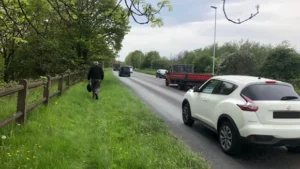The first ever regional decarbonisation strategy for the North of England is going out to public consultation today and will give residents in the region the chance to have their say on ambitious targets to reduce carbon emissions from surface transport.
It is the first time a regional strategy of this type has been produced, bringing together the region’s leaders to speak out with one voice on the climate emergency.
The strategy, developed by the region’s political and business leaders through Transport for the North (TfN), sets out the ambitious goal of achieving near-zero carbon emissions from surface transport by 2045, reports the NWE Mail.
Surface transport is the largest contributing sector to greenhouse gas emissions in the UK – accounting for 22% of all emissions in 2019. The majority (95%) of this is from road transport, so opportunities around electric and alternative fuel vehicles are a key part of the developing strategy.
However, moving towards decarbonisation is not simply about lowering carbon emissions from traditional road vehicles – it can also mean making the most of opportunities such as technological advances to enhance the wider transport network and improve connectivity.
Among the potential actions and areas of focus the strategy considers are:
• Zero emission vehicles, including cars, HGVs and buses, with a comprehensive network of charging facilities to support their wider use
• The decarbonisation of the rail network through electrification
• The use of hydrogen and alternative fuel vehicles
• Encouraging modal shift towards more sustainable ways of travelling, such as public transport and active travel
• Opportunities for decarbonisation in the freight industry
• Carbon reduction when projects are built, as well as carbon capture
• How Transport for the North’s four Future Travel Scenarios could present challenges and opportunities for decarbonising transport
























